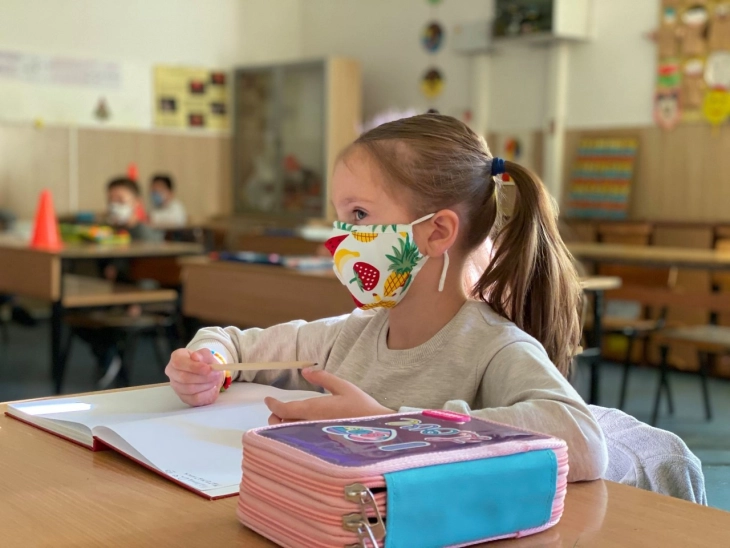UNICEF: Prolonging start of school year must be temporary measure - school closures for in person learning must be measure of last resort

Skopje, 18 January 2022 (MIA) – As the country experiences yet another spike in COVID-19 infections, increasingly fuelled by Omicron, the best interests of children must be central to any decision-making by the community and the government on whether to keep schools open. The Government decision to prolong the start of the school year after the winter break must be a temporary measure and all efforts must be put in place to get children back in classrooms, the UNICEF Office in North Macedonia said in a press release.
According to UNICEF Representative Patrizia DiGiovanni mitigation measures in schools are effective and in-person schooling does not appear to be the main driver of infection spikes.
“In the last month of schooling in 2021, the data show very low transmission with only 0.01% of new cases daily among students and 0.03% among teachers. As a comparison, in the two weeks when schools were closed for winter holidays newly infected cases in the community across all ages increased fourfold from some 2,600 to 11,000 confirmed positive cases. We must use this knowledge to do everything we can to keep schools open and keep children safe in classrooms and learning,” reads a statement by DiGiovanni.
It is not uncommon for the country to prolong the start of the school year in the past due to winter weather conditions, however the situation has changed, DiGiovanni notes. Previous delays in the start of the school year were isolated and learning time lost was compensated. The situation this year is compounded by long periods of school closures due to the pandemic.
“Another wave of school closures would be disastrous for children. Before the COVID-19 pandemic, North Macedonia was already facing a learning crisis with more than half of all fifteen-year-olds in the country failing to meet basic proficiency levels in reading and maths. North Macedonia already had the longest school closures in the region, with schools in the country closed for a total of 54 weeks compared to the average of 24 in the Europe and Central Asia region. During this period, more than 60 per cent of teachers reported that the number of students who struggle with the curricula has increased during this period,” the UNICEF Representative points out.
It’s clear it’s in the best interests of children to be in the classroom, DiGiovanni notes, and schools reopening should be a priority for the entire county. The risks to children of being out of school are still greater than the risks of being in school.
She points out that prolonged, nationwide school closures; limited resources for students, teachers and parents; and lack of access to remote learning have wiped out decades of progress in education and rendered childhood unrecognizable.
“That is why nationwide school closures should be avoided whenever possible. When COVID-19 community transmission increases and stringent public health measures become a necessity, schools must be the last places to close and the first to re-open. What does it say about our priorities if schools are closed and other public places remain open? The community and the government have an opportunity to show children they are the most important resource of this country by keeping schools safe and open for in-person learning. 2022 cannot be yet another year of disrupted learning. It needs to be the year that education, and the best interests of children, take precedence,” UNICEF Representative Patrizia DiGiovanni says.







